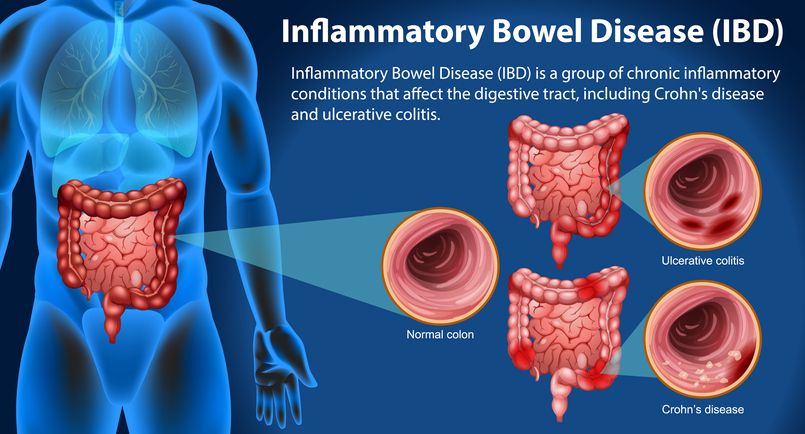What you need to know about Food Additives and Inflammatory Bowel Disease: Improve Gut Health with Tips from New York Certified Dietitian Nutritionist
The incidence and prevalence of inflammatory bowel disease, which includes Crohn’s disease and colitis, has increased over the 21st century. Though the exact cause is unclear, there appears to be an interaction between environmental exposures, genetics, and an immune response. As an RDN with over 30 years of experience working with patients, I have noticed a steady increase in those who struggle with IBD and gut health. Diet represents a key environmental factor, and evidence shows that food additives can modify the interaction between the gut microbiota and intestinal inflammation.
Evidence shows that the Western diet (typically dominant in red and processed meat, saturated fat, ultra-processed carbohydrates) increases the risk of developing IBD and enhances progression. These foods can induce change in the microbiota which contribute to intestinal inflammation. What has been overlooked is that this Western diet is also associated with increased intake of food additives.
To improve your digestive health, I have developed my avoidance list from the latest data:
INFLAMMATORY BOWEL DISEASES AVOIDANCE LIST
Growing evidence suggests that food additives may be closely related to inflammatory bowel disease.
These food additives have been shown to play a role in chronic intestinal (gut) inflammation which may in turn contribute to inflammatory bowel disease:
ARTIFICIAL SWEETENERS
Acesulfamine-K (Ace-K)
Steiva
Saccharine
COATING AND THICKENING AGENTS
Maltodextrin
EMULSIFIERS
Polysorbate 80
Carboxymethylcellulose (CMC)
Carrageenan
FOOD COLORANTS
Titanium Dioxide
Azo Dyes (colors)
PRESERVATIVES
Sulfites
AgNPs
Diet has a key role in the prevention and treatment of IBD. Evidence is accumulating that additives may have a severe impact on not just the onset but the progression of IBD. Nutrition education, learning to read food labels, and a better understanding of how to differentiate between processed and ultra processed foods is a big part of working with an RDN. Take the guesswork out of what’s on your plate, feel empowered to make the best choices for your individual needs, and begin to heal.
Learn more here:
Liu C, Zhan S, Tian Z, Li N, Li T, Wu D, Zeng Z, Zhuang X. Food Additives Associated with Gut Microbiota Alterations in Inflammatory Bowel Disease: Friends or Enemies? Nutrients. 2022; 14(15):3049.
Raoul P, Cintoni M, Palombaro M, Basso L, Rinninella E, Gasbarrini A, Mele MC. Food Additives, a Key Environmental Factor in the Development of IBD through Gut Dysbiosis. Microorganisms. 2022 Jan 13;10(1):167. doi: 10.3390/microorganisms10010167. PMID: 35056616; PMCID: PMC8780106.
Aaron S Bancil, Alicia M Sandall, Megan Rossi, Benoit Chassaing, James O Lindsay, Kevin Whelan, Food Additive Emulsifiers and Their Impact on Gut Microbiome, Permeability, and Inflammation: Mechanistic Insights in Inflammatory Bowel Disease, Journal of Crohn’s and Colitis, Volume 15, Issue 6, June 2021, Pages 1068–1079,
DANIELLE GAFFEN, MS, RDN, LD, Food Additives: Which to Watch Out for with IBD



